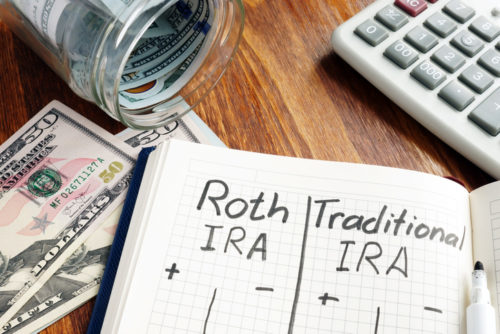by Matthew Terzian, CFA, CFP
“…In this world nothing can be said to be certain, except death and taxes.”
Benjamin Franklin, 1789
The longer one participates in the workforce the louder this quote rings true on the tax front. And unfortunately, the longer one lives, they can relate more and more on the death front, especially in today’s world. While the C-19 pandemic is a tragedy on a global scale and our hearts go out to all of those affected, this commentary focuses on taxes, specifically how they affect decisions relating to IRA Roth conversions.
While paying taxes is as certain as the sun rising each morning, there is one uncertainty surrounding all of this: tax law, which seems to change more often than we change our socks. While we can relate to Mr. Franklin on taxes – and also on his choice of hairstyles these days with barbershops and salons having been shuttered for close to three months and many of us having bad hair days – there are strategies to lessen the effect of taxes. There are also strategies on the hair front should one find the right hair clipper and scissors on Amazon, but this commentary is not meant to give self-grooming advice. That is best left to YouTube or late-night cable television.
The power of IRA’s is that they can be used to alleviate some of the tax burden we face, but many times we have to make tax decisions regarding our IRA’s years – if not decades – before we would end up paying those taxes. This decision tree can have many branches and many inputs, including an estimate as to where taxes will be when one accesses their IRA and a person’s current tax situation in a given year. There is also a certain amount of educated guessing – the leaves on the tree – not unlike our bracket decisions heading in to March Madness on a typical year looking at such things as momentum, roster depth and strength of schedule. With a closely watched November presidential election and with the 2017 tax cuts scheduled to expire in 2025 – not to mention market volatility and a worldwide pandemic – there are many unknowns.
Our current environment warrants a serious look at converting a traditional IRA to a Roth IRA for a number of reasons. With the C-19 pandemic and the ensuing CARES Act which allows holders of traditional IRA’s to skip their required minimum distribution (RMD) this year, along with the increasing job losses, many people will see decreased earnings, and hence decreased tax liability in 2020. As much as the markets have rallied since their late March lows, they are still significantly off their February highs.
In addition to all of these reasons, a conversion allows someone in a high-income tax bracket, who is not eligible to open a Roth IRA, to get the benefit of a Roth IRA, by converting their traditional IRA, as has been the case for many years. This year many of those in this situation are presumably facing lower tax burdens due to the suspension of the RMD requirement and a decelerating economy. Future tax rates are uncertain, but taxes are not. And a $3 trillion plus stimulus package has to be paid by someone, and a rise in future tax rates seems quite realistic.
For the first time since the 2008 Financial Crisis, this year might very well be the year to consider converting your traditional IRA in to a Roth IRA depending upon your individual circumstances. ACM advisors stand ready to help.
ACM is a registered investment advisory firm with the United States Securities and Exchange Commission (SEC). Registration does not imply a certain level of skill or training. All written content on this site is for information purposes only. Opinions expressed herein are solely those of ACM, unless otherwise specifically cited. Material presented is believed to be from reliable sources and no representations are made by our firm as to another parties’ informational accuracy or completeness. All information or ideas provided should be discussed in detail with an advisor, accountant or legal counsel prior to implementation. All investing involves risk, including the potential for loss of principal. There is no guarantee that any investment plan or strategy will be successful. ©ACM Wealth

